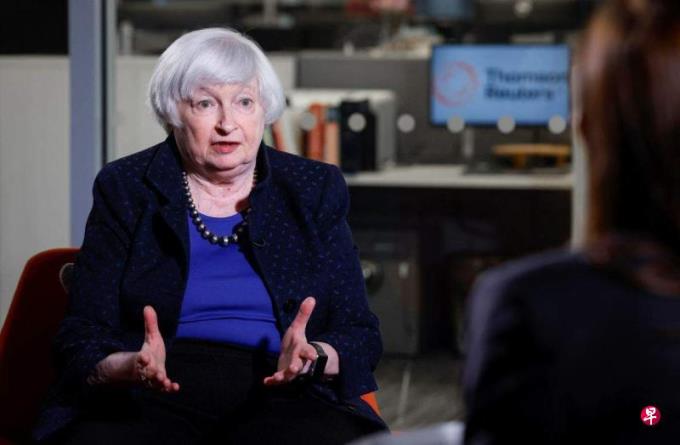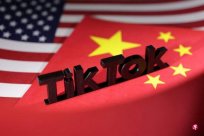
(Washington Composite Electric) US Treasury Secretary Yellen reiterated that the Bayeng government will retain all options to deal with the threat of China's excess capacity.She pointed out that China ’s full employment through exports is unacceptable to the United States and other countries.
Yellen Thursday (April 25) in Washington was interviewed in Washington that Chinese decision makers admit that their electric vehicles, solar panels and other clean energy products have overcapacity, and they must solve this problem.She said that during the period of the International Monetary Fund (IMF) and the World Bank Spring Conference held in Washington last week, China and the United States held this issue "in -depth discussion".
Yellen shows that it does not want the US industry to be destroyed, so it will not rule out any options, including the implementation of new tariffs or taking other actions to protect American manufacturers from exported Chinese export products.
She said that overcapacity in China threatens the survivability of the United States, Europe, Japan, Mexican and Indian manufacturers, but this problem will not be resolved in a few days."Therefore, it is important to know and start taking action to solve this problem, but we don't want our industry to be destroyed during this period, so I don't want to take any options from the negotiating table."
Yellen said that the United States is talking to China how to balance domestic and global economic growth.She pointed out that for economies such as China in China, consumer expenditures accounted for very low in domestic GDP (GDP), and the savings rate was close to 45 %. Therefore, it is necessary to support domestic demand, especially to promote promotionConsumption.
Yellen said: "China is a huge and important economy. They can achieve full employment by exporting, which is unacceptable to other countries in the world."
In addition, Yellen mentioned in the interview that the United States can reduce inflation without harming employment, and pointed out that there is no evidence that salary pressure is one of the causes of inflation.
Data from the US Department of Commerce show that the first quarter of the US GDP increased by 1.6 %, which was lower than the 2.4 % estimated by the economist.Yellen said that after mastering more data, the growth rate of GDP in the first quarter of the United States may increase, and the inflation rate will fall to a more normal level.
U.S. Republican MPs urge the government to ban all sales of Huawei
On the other hand, the United States Republican councilor released a new notebook computer equipped with Intel Artificial Intelligence (AI) processor chip in Huawei, a Chinese communication equipment giant, and urged the Biden government to prevent all sales of Huawei.
Huawei launched the MateBook X Pro notebook computer on April 11th with Intel AI chip. As a result, Republican lawmakers were criticized, and that this shows that the US Department of Commerce has turned on a green light for Intel to sell chips to Huawei.
Senator Rubio, who advocated a tough position in China, and Stervonic, who wrote to the Minister of Commerce Raymond, called on the Bayeng government to "immediately revoke all export permits to Huawei."
Mei Pan Japan and South Korea Lianhe Tighten the limitation of Chinese chip
According to the Financial Times, the United States hopes to join forces with the Netherlands, Japan and South Korea to export stricter chip technology and equipment exports to China to cope with the challenges brought about by the development of advanced semiconductor development.
Insiders say that the United States does not require Japan, South Korea, and the United States to establish a new mechanism, but hopes that they can make good use of existing export controls, including prohibiting domestic engineers from manufacturing equipment for Chinese advanced semiconductor factories.
The United States also hopes that the three countries can take action to make it more difficult for China to avoid the US ban and make China more difficult to obtain semiconductor products or services from third countries.




